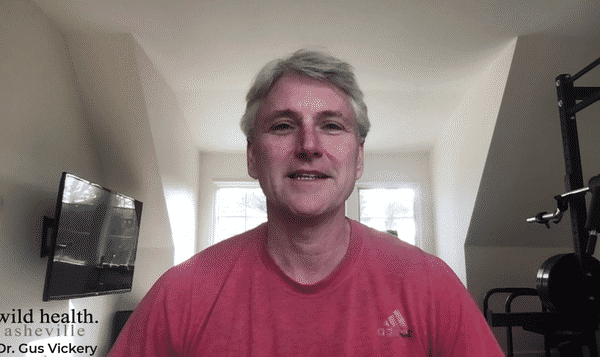Optimizing Your Health Part 8
Let’s finish this series with a discussion of some of the practical aspects of health optimization. We’ve already talked about the need for a motivated individual, an experienced clinician, and the right types of data. Those are foundational to this process. We’ve also explained that you must provide your body with the right information and minimize the wrong information so it can thrive.
Now we will discuss the many different interventions we can use to optimize health.
Practical Interventions
Supplements
Virtually everyone I consult with does need some additional supplementation, but I try to minimize that supplementation. I do believe that, for the most part, our bodies are designed well and we can thrive without having to use supplements. However, in the time we live in, our foods don’t contain the same nutrient density they once did. In addition, we’re exposed to far more toxins, and our circadian rhythms have been disrupted.
All of my clients can benefit from the use of a high-quality, bio-available basic multivitamin and take about half the dose on a consistent basis to make sure their body is getting all the micronutrients it needs. All of my clients also need additional omega-3 fatty acids, which are important nutrients that we don’t get enough of in our diet.
I wish I could universalize the next one, but I can’t. Most individuals also need additional vitamin D. Vitamin D is not just a vitamin, it is a prohormone. It has modulating activity on more than 1,000 genes in the human genome, and we were designed to get it from the sun. However, we do not get nearly the level of sun exposure we once did. I’m not recommending everyone put on a loincloth and go forage for food every day. But I am recommending that most individuals consider taking some amount of vitamin D supplementation. However, this must be individualized. Consider asking for a vitamin D test.
>
“Everything has to be done in a way that is balanced and is actually helpful to the body. ”
Virtually every client I test needs these supplements. Depending on the other factors we identify, they might need more of some and less of others. Some may need help with their detoxification systems. Others may need additional nutrients due to identified deficiencies. Some need to be able to improve biochemical processes such as methylation, and we can use targeted supplement protocols to help with these processes. If we see neurotransmitter imbalances, then we can also use targeted substrates and cofactors to improve neurotransmitter balance and improve central nervous system health.
In addition, there are supplements that could have a metabolic benefit or a cognitive benefit when used consistently. There are also supplements that might reduce inflammation if a person has chronic inflammation. There are supplements that help with insulin resistance and weight loss.
Most of my patients are not taking any supplements at the time of their analysis. However, some are taking an enormous number of supplements, and often we’re reducing the amount of supplements they take. Everything has to be done in a way that is balanced and is actually helpful to the body. But supplements do play a role in health optimization.
Pharmaceuticals
In some specific cases, we’ll also use pharmaceuticals. New patients come in biased against pharmaceuticals because they believe they’re overprescribed and dangerous. There’s always risk to any intervention; it doesn’t matter if it’s natural or synthetic. But pharmaceuticals can play a helpful role in maintaining and optimizing health.
I’ve had many cases where a patient’s detailed analysis revealed a substantial likelihood that they may have a significant amount of plaque build-up in their arteries and that this could be unstable and possibly result in some form of acute arterial event, such as a stroke or heart attack. We then do objective plaque studies and identify that, in fact, they do have more plaque than what would be predicted for their age. For some individuals, blood pressure or cholesterol pharmaceuticals can help protect them and reduce the progression of disease. Pharmaceuticals play a role in health optimization.
Peptides
Peptides are used in an emerging area of therapy known as biological therapies. Peptides are natural; our body makes them. The wonderful thing about peptides is they tend to have no long-term negative impact. They can, in a very targeted way, create physiological changes that can optimize our health and genetic expression without overriding our body’s normal regulatory function.
>
“Peptides are a powerful therapeutic tool for the process of health optimization.”
There are many different peptides with many different purposes. They are made by compounding pharmacies. It’s very important that you get peptides from a reputable source, as there are many poor-quality products on the market that will not do you any good. However, peptides are a powerful therapeutic tool for the process of health optimization.
Hormones
There’s also hormonal optimization. As we age, our hormonal function declines. That’s natural and part of the process. We will naturally, over time, develop lower levels of testosterone, estrogen, progesterone, growth hormone, and other hormones. This will influence our health and accelerate aging.
These hormones are not just about sexual function. They play an important role in an optimized state of being. For patients who’ve experienced this decline in hormone levels, we have both natural methods of improving their body’s ability to maintain optimized hormone balance and hormone replacement strategies that can be quite effective. Either can play a helpful role in health optimization, especially as we age. It’s not about living forever, it’s about being as healthy as possible for as long as we get to be alive.
Medical Devices
Photo-biomodulation—the use of cold therapies and saunas, pulsed electromagnetic field generators, brain retraining devices that can change brain wave states, and many other types of devices—can effectively modulate our physiology, improve our genetic expression, and improve our state of being.
These devices can be quite effective and useful. They also generally cannot cause harm. Many of my patients will choose to use these different devices as a way of expediting their journey to health optimization. They have been especially helpful for issues such as chronic heightened stress response and dysfunctional circadian rhythm function.
As you can see, there are many tools we can use to optimize our health. Any tool that may help an individual on this journey that’s safe and appropriate for them can and should be used. Once we have the data, we choose from these different tools and put together the most effective plan for that individual patient.
Utilizing a Health Coach
Change is hard, and we must work with the individual to make sure that the plan we’re proposing is one they can do. That’s where health coaching comes in.
It can be very helpful to use a health coach regularly to help you adapt your life to the new plan. It’s amazing how effective this can be. The barriers to change can be identified, and the person can be coached on how to use effective strategies to overcome these barriers so they can follow the plan that will optimize their health. It’s also important to have accountability. Accountability helps all of us.
>
“Optimized health gives us the best opportunity to share our talents and gifts with one another.”
And so does support. Those closest to you participating in this journey with you will increase your likelihood of success. Often, I will have spouses come in together so they can understand each other’s health situation and their individual plan and help each other succeed. It’s very exciting for me to be part of this process.
The Importance of Follow Up
Finally, we follow the data over time. Our bodies change over time, as do our exposures. We will always have blind spots, and data can expose our blind spots. That allows us to continue to adapt the plan so we know that the individual is continuing their journey of health optimization with the highest likelihood of success.
It’s so much fun to watch this process unfold. It’s fun to see clients get excited as they see their health metrics improve and know that their body is becoming healthier. It’s amazing to hear their testimonies of how good they feel, and how much more capable they feel. You feel like you have the incredible privilege of partnering with an individual in the restoration of their health and their life.
Another aspect of this that the clients report enjoying is that they don’t have to worry anymore. They know that they have the information they need about their health, and they know they have a plan of action that is working. They don’t feel they need to read diet books or health articles any longer. They now know the truth about their own personal health.
I believe that as we experience our best health, we become better people and better stewards of our communities and our environment. I hope that we all start to ask for more from our minds and bodies, and from our policy makers and our marketplaces. For now, don’t wait on the status-quo healthcare system to provide this for you—you must look for it. You must be willing to invest in it.
Don’t settle for a lesser version of yourself. Don’t leave this world without having realized the potential within you. This world needs you. Everyone has unique gifts and talents that can make this world a better place when shared with others. Optimized health gives us the best opportunity to share our talents and gifts with one another. I hope you’ll join me on this journey.
If you’re not experiencing your best health, if you’re not feeling the way you would like to feel, if you have health issues, then you need to get on the map and you need to get started. I can help you build a strategic mindset for success. Join me on the path of authentic health.










